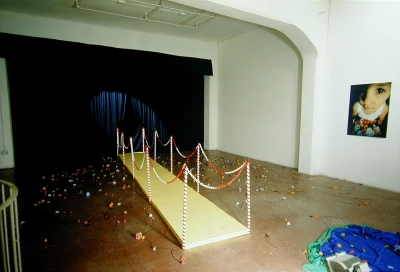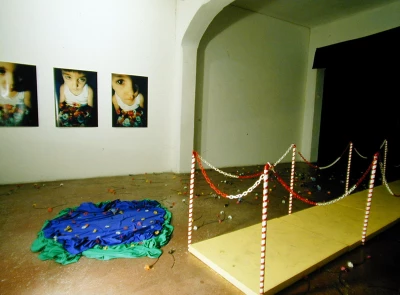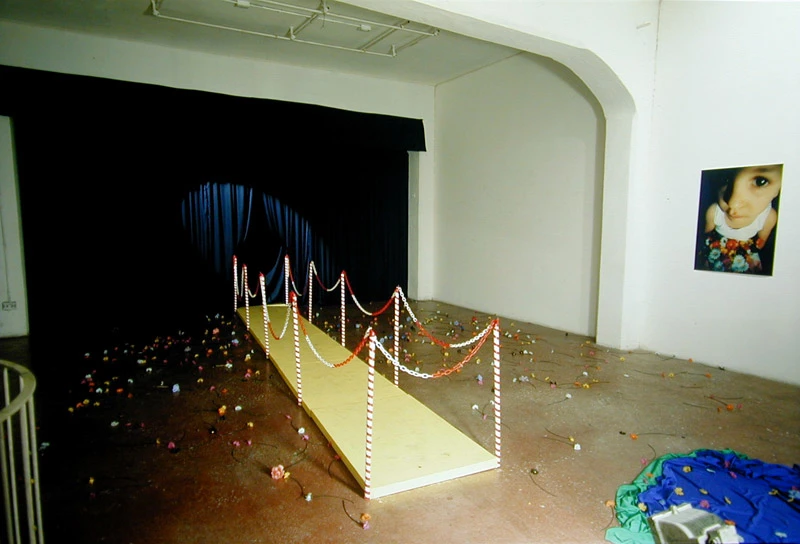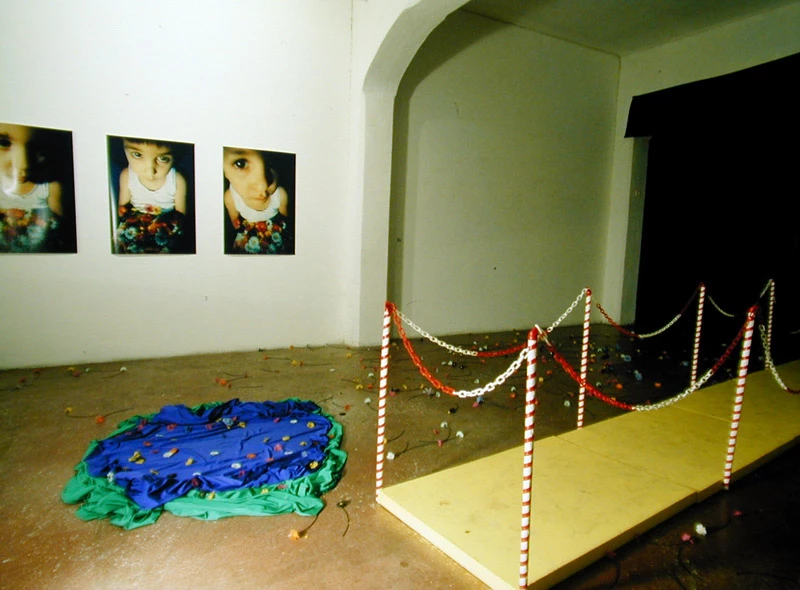Pensarsi Addosso + Orazio Forti
Curated by Gabi Scardi
Solo show by Luca Barzaghi with video by Orazio Forti
18.10.1998 - 10.11.1998
Luca Barzaghi presents his own personal reality—intimate, internal, charged with a deep sense of altruism. Through a performance, a video, a prose piece, and a series of photographs, this reality expands before the viewer, generously.
For Barzaghi, the work made up of episodes drawn from his experience is merely an object, a tool of communication. The actual facts—those few sparse memories of everyday events or dramatic moments—hold little importance; they are just scattered supports, anchoring the narrative to the concrete base of his biography.
The events mostly seem to unfold in the background, passing by like details—inevitable but insubstantial—destined to be absorbed into a continuous flow, while Barzaghi himself is focused elsewhere. As if life were something else, something much more important; as if, to access what is truly authentic in it, one must first acknowledge its most ordinary aspects, only to then transcend them through diversion and allow thought to take flight. One might almost say that nothing really happened. It is up to the viewer, perhaps, to feel the drama in the telling, to see the knife turning in the wound.
For Luca Barzaghi, autobiographical thought is a constant presence in life. He feels as though there are many selves within us. As if life had an immediate echo—as if it were lived twice: once in the first person, and once through the other within us, a composite of many familiar voices, busy telling a story…
Barzaghi multiplies himself, gives life to this other outside himself. He stages a theater for the infinite cast of characters, entrances and exits that spring from his biography. Characters, circumstances, emotions, thoughts—once released—take on their own freedom. One need only keep watch to see them moving about autonomously. And he observes them as a spectator, in search of the meaning of that life.
In beginning to reimagine himself, he never stops discovering and feeding new curiosity—tracing backward through time to the very beginning, to his mother, who in the video O me o Sheila is called upon to testify on his behalf about what came before his birth. And in the free, anti-literary prose of his book Uno stato d’essere, where he is both observer and observed.
Gabi Scardi
In the video room, Careof presents an anthology of works by Orazio Foti:
Oggi Sposi, 8′, 1994
Racconto, 10′, 1994
Maya, 25′, 1996
Francesco Porcino, 5′, 1996
Nero Chiaro, 26′, 1997



